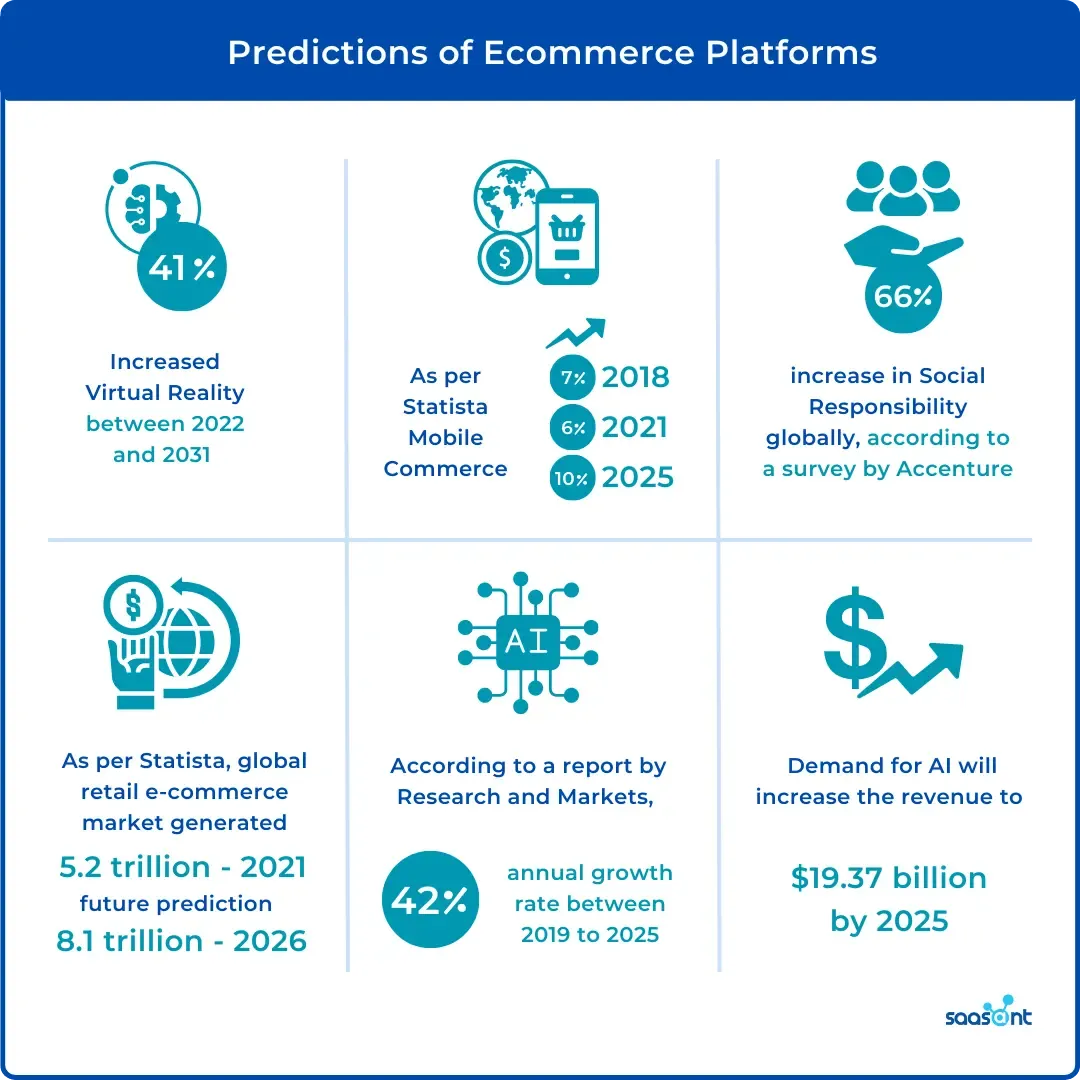Shopify, WooCommerce, BigCommerce, Wix, Squarespace, Magento, and Weebly are the 7 best eCommerce platforms for small businesses in 2025. These platforms offer flexibility, affordability, and ease of use.
Choosing the right eCommerce platform is crucial for small businesses aiming to succeed online. Each platform caters to different needs, budgets, and technical abilities, offering unique features and benefits. Shopify and WooCommerce are popular for their scalability and extensive plugin options.
BigCommerce and Wix stand out for their user-friendly interfaces. Squarespace offers beautiful design templates, while Magento provides robust customization options for tech-savvy users. Weebly is ideal for those seeking simplicity and ease of use. Selecting the best platform can help streamline operations, enhance customer experience, and drive sales growth.
Shopify
Shopify is one of the most popular ecommerce platforms for small businesses. It offers a range of features that make it easy to set up and manage an online store. Whether you are a newbie or an experienced entrepreneur, Shopify provides everything you need to start selling online quickly.
Key Features
- Customizable Templates: Choose from over 70 professional templates.
- Mobile-Optimized: All themes are fully responsive and mobile-friendly.
- App Store: Access to over 4,000 apps to extend functionality.
- Secure Payments: Integrated with over 100 payment gateways.
- SEO Tools: Built-in SEO features to help improve search engine rankings.
- 24/7 Support: Round-the-clock customer support via chat, email, and phone.
Pros And Cons
| Pros | Cons |
|---|---|
| Easy to use interface | Transaction fees if not using Shopify Payments |
| Wide range of templates | Costs can add up with apps |
| Excellent customer support | Limited customization for checkout |
| Strong SEO features | Advanced features only in higher plans |
Pricing
- Basic Shopify: $29 per month. Suitable for new businesses.
- Shopify: $79 per month. Ideal for growing businesses.
- Advanced Shopify: $299 per month. Best for scaling up businesses.
Each plan includes a free SSL certificate, abandoned cart recovery, and unlimited products. The Basic Shopify plan is great for startups. The Shopify plan offers more advanced features. The Advanced Shopify plan is for businesses looking to expand.

Woocommerce
WooCommerce is a popular eCommerce platform for small businesses. It integrates seamlessly with WordPress, making it a top choice for many. WooCommerce is known for its flexibility and extensive customization options.
Key Features
- Open-source: Free to use and modify.
- Customizable: Thousands of themes and plugins available.
- Product Management: Easy to add, manage, and sell products.
- Payment Gateways: Supports multiple payment options.
- Analytics: Built-in reporting and analytics tools.
- SEO Friendly: Optimized for search engines.
Pros And Cons
| Pros | Cons |
|---|---|
| Highly customizable with plugins and themes. | Requires WordPress to operate. |
| Free to use and modify. | May need technical skills for setup. |
| Large community for support. | Performance can be slow with many plugins. |
Pricing
WooCommerce itself is free. But, you may need to pay for:
- Hosting: Costs vary based on provider.
- Premium Plugins: Prices range depending on functionality.
- Themes: Free and paid options available.
Overall, costs depend on your specific needs and choices.
Bigcommerce
BigCommerce is a powerful ecommerce platform designed for small businesses. It offers a range of features to help you build and grow your online store. With its user-friendly interface and robust tools, BigCommerce is a top choice for many small business owners.
Key Features
- Customizable Templates: Choose from a variety of templates to match your brand.
- SEO Tools: Built-in SEO features to help you rank higher on search engines.
- Multichannel Selling: Sell on various platforms like Facebook, Instagram, and Amazon.
- Secure Payment Options: Multiple payment gateways to ensure secure transactions.
- 24/7 Support: Access to customer support anytime you need help.
Pros And Cons
| Pros | Cons |
|---|---|
| Easy to use interface | Limited free themes |
| Excellent SEO features | Higher pricing for advanced features |
| Great support team | Transaction fees may apply |
Pricing
BigCommerce offers several pricing plans to fit different business needs:
- Standard Plan: $29.95 per month
- Plus Plan: $79.95 per month
- Pro Plan: $299.95 per month
- Enterprise Plan: Custom pricing for large businesses
Each plan comes with a range of features to help you succeed online.
Squarespace
Squarespace is a popular ecommerce platform in 2025. It offers a sleek, user-friendly interface and powerful design tools. Small businesses love its ease of use and beautiful templates.
Key Features
- Drag-and-Drop Interface: Easily customize your store.
- Beautiful Templates: Choose from a wide range of stunning designs.
- Mobile Optimization: Ensure your store looks great on all devices.
- Integrated SEO Tools: Boost your store’s visibility in search engines.
- 24/7 Customer Support: Get help whenever you need it.
Pros And Cons
| Pros | Cons |
|---|---|
|
|
Pricing
Squarespace offers three pricing plans:
- Personal: $16/month – Basic features for individuals.
- Business: $26/month – Enhanced features for small businesses.
- Commerce: $35/month – Advanced features for growing stores.
Each plan includes a custom domain, SSL security, and unlimited bandwidth.
Wix
Wix is a popular choice for small businesses seeking an easy-to-use ecommerce platform. It offers a drag-and-drop interface, making website creation simple, even for beginners. With numerous templates and customization options, Wix allows you to design a unique online store that fits your brand.
Key Features
- Drag-and-Drop Builder: Create your website without coding.
- Templates: Access to over 500 customizable templates.
- App Market: Integrate various apps to enhance functionality.
- Mobile Optimization: Ensure your store looks great on all devices.
- SEO Tools: Improve your website’s search engine ranking.
Pros And Cons
| Pros | Cons |
|---|---|
|
|
Pricing
Wix offers several pricing plans to fit different needs and budgets:
- Combo Plan: $14 per month – Basic features for personal use.
- Unlimited Plan: $18 per month – Suitable for entrepreneurs and freelancers.
- Business Basic: $23 per month – Ideal for small businesses.
- Business Unlimited: $27 per month – Advanced features for growing businesses.
- Business VIP: $49 per month – Comprehensive package with priority support.

Magento
Magento stands out as a powerful ecommerce platform for small businesses. It offers a range of features that help businesses grow and thrive online. Let’s dive into what makes Magento a top choice for small businesses in 2025.
Key Features
Magento provides a rich set of tools to create and manage online stores. Some of its key features include:
- Customizable Themes: Choose from a variety of pre-designed templates.
- SEO Optimization: Built-in tools help improve search engine rankings.
- Mobile-Friendly: Responsive design for mobile users.
- Multilingual Support: Sell products in multiple languages.
- Inventory Management: Efficiently manage stock levels and orders.
- Analytics and Reporting: Gain insights through detailed reports.
Pros And Cons
| Pros | Cons |
|---|---|
| Highly Customizable | Requires Technical Knowledge |
| Scalable | Can Be Expensive |
| Strong Community Support | Slow Load Times |
Pricing
Magento offers two main pricing options:
- Magento Open Source: Free to use but requires hosting and development costs.
- Magento Commerce: Paid version with advanced features and support.
The cost of Magento Commerce varies based on business needs. Small businesses might find Magento Open Source a budget-friendly option.
Weebly
Weebly offers an intuitive platform perfect for small businesses venturing into ecommerce. It combines simplicity with powerful tools, ideal for startups.
Weebly is a versatile platform perfect for small businesses. It offers a simple drag-and-drop interface. This makes it easy for anyone to build a professional website.
Key Features
- Drag-and-Drop Builder: Build your site without coding skills.
- Mobile-Optimized: Sites look good on all devices.
- SEO Tools: Improve your search engine rankings easily.
- Integrated Shopping Cart: Sell products directly from your site.
- App Center: Add extra features with apps.
Pros And Cons
| Pros | Cons |
|---|---|
| Easy to use for beginners | Limited design flexibility |
| Affordable pricing plans | Basic eCommerce features |
| Good customer support | Fewer app integrations |
Pricing
- Free Plan: Basic features with Weebly branding.
- Personal Plan: $6/month, custom domain.
- Professional Plan: $12/month, advanced features.
- Performance Plan: $26/month, full eCommerce capabilities.

Comparison Of Platforms
Choosing the right ecommerce platform is crucial for small businesses. In 2025, several platforms stand out for their features and usability. This section compares the top 7 ecommerce platforms based on ease of use, customization options, and support. Let’s dive into the details.
Ease Of Use
Ease of use is essential for small business owners. They often manage many tasks themselves. Here’s a comparison of the platforms:
| Platform | Ease of Use Rating |
|---|---|
| Shopify | ⭐⭐⭐⭐⭐ |
| WooCommerce | ⭐⭐⭐⭐ |
| BigCommerce | ⭐⭐⭐⭐⭐ |
| Wix | ⭐⭐⭐⭐⭐ |
| Squarespace | ⭐⭐⭐⭐ |
| Magento | ⭐⭐⭐ |
| Weebly | ⭐⭐⭐⭐ |
Customization Options
Customization is key for branding and unique user experiences. Each platform offers varying levels of customization:
- Shopify: Offers a wide range of themes and apps.
- WooCommerce: Highly customizable with plugins and themes.
- BigCommerce: Provides extensive customization but requires coding knowledge.
- Wix: User-friendly drag-and-drop builder with many templates.
- Squarespace: Beautiful templates but limited third-party integrations.
- Magento: Extremely flexible but best for advanced users.
- Weebly: Simple customization options suited for beginners.
Support
Reliable support is essential for smooth operations. Here’s how the platforms rank:
- Shopify: 24/7 support via chat, email, and phone.
- WooCommerce: Community support and extensive documentation.
- BigCommerce: 24/7 support with a dedicated team for enterprise users.
- Wix: Comprehensive help center and forums.
- Squarespace: 24/7 email support and live chat.
- Magento: Community support and paid premium support.
- Weebly: Email and chat support during business hours.
Frequently Asked Questions
What Are The Top Ecommerce Platforms For 2025?
The top ecommerce platforms for 2025 include Shopify, WooCommerce, BigCommerce, Wix, and Magento. These platforms offer robust features, scalability, and user-friendly interfaces. They also provide various pricing plans suitable for small businesses.
How Do I Choose The Best Ecommerce Platform?
Choose the best ecommerce platform by evaluating your business needs, budget, and technical skills. Consider features like payment gateways, integrations, and customer support. Also, read user reviews and compare pricing plans.
Is Shopify Good For Small Businesses?
Yes, Shopify is excellent for small businesses. It offers easy setup, a variety of templates, and robust customer support. Plus, it has various pricing plans to suit different budgets. Shopify also provides powerful marketing tools.
Can I Use Woocommerce For A Small Business?
Yes, WooCommerce is ideal for small businesses. It’s a flexible, open-source platform that integrates seamlessly with WordPress. WooCommerce offers various plugins and themes, making it highly customizable. It’s also budget-friendly.
Conclusion
Choosing the right ecommerce platform is crucial for your small business’s success. The seven platforms listed offer great features and flexibility. Evaluate each one based on your specific needs. This ensures you select the best fit. Stay ahead in 2025 by leveraging these powerful ecommerce solutions.
Happy selling!
